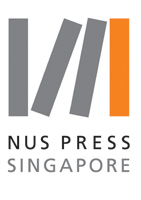National University of Singapore Press
Liberalism and the Postcolony
Thinking the State in 20th-Century Philippines
9789814722520
Distributed for National University of Singapore Press
Liberalism and the Postcolony
Thinking the State in 20th-Century Philippines
The Philippines entered the twentieth century newly free of Spanish rule and faced with the task of building a nation. Due in part to American control of the country for the first half of the twentieth century, liberalism played a dynamic role in shaping the government and philosophy of the Philippines.
Through the biographies of four Filipino scholar-bureaucrats—Camilo Osias, Salvador Araneta, Carlos P. Romulo, and Salvador P. Lopez—Lisandro E. Claudio argues that liberal thought served as the grammar of Filipino democracy in the twentieth century. Melding political philosophy and narrative history, he takes us through various articulations of liberalism in pedagogy, international affairs, economics, and literature. In this first book on Filipino liberals in the twentieth century, Claudio brings to light an obscured history of the Philippine state and also argues for a new liberalism rooted in the postcolonial experience, a timely intervention in light of the ascent of President Rodrigo Duterte and the current developments in Southeast Asian politics.
Through the biographies of four Filipino scholar-bureaucrats—Camilo Osias, Salvador Araneta, Carlos P. Romulo, and Salvador P. Lopez—Lisandro E. Claudio argues that liberal thought served as the grammar of Filipino democracy in the twentieth century. Melding political philosophy and narrative history, he takes us through various articulations of liberalism in pedagogy, international affairs, economics, and literature. In this first book on Filipino liberals in the twentieth century, Claudio brings to light an obscured history of the Philippine state and also argues for a new liberalism rooted in the postcolonial experience, a timely intervention in light of the ascent of President Rodrigo Duterte and the current developments in Southeast Asian politics.
248 pages | 17 halftones | 6 x 9 | © 2017
Kyoto CSEAS Series on Asian Studies
Asian Studies: Southeast Asia and Australia
Political Science: Diplomacy, Foreign Policy, and International Relations, Political and Social Theory

